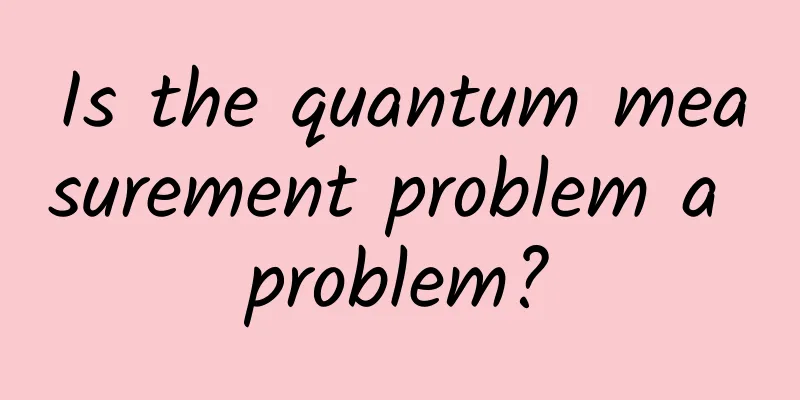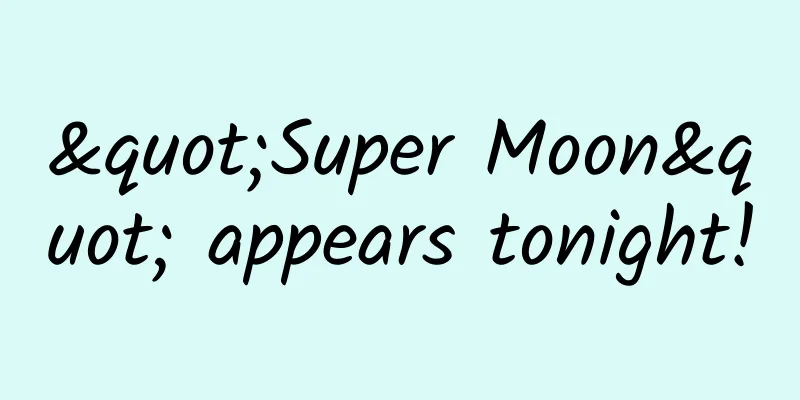Is the quantum measurement problem a problem?

|
The problem of quantum measurement is an unavoidable problem in the development of quantum mechanics. It involves the essence of quantum mechanics, and the relevant debates still exist today. Physicists have different views. The author of the text, ND Mermin, believes that there is no measurement problem in quantum mechanics: there is no "real" quantum state in the physical system, and the state depends on the choice and calculation of the physicist. Of course, for many physicists, the attitude towards the interpretation of quantum mechanics is "Shut up and calculate!" Interestingly, this famous quote that is always attributed to Feynman was actually first written by ND Mermin. Written by ND Mermin (Professor Emeritus of Physics, Cornell University) Translation| 1/137 The idea that wave function collapse is a physical process stems from a misunderstanding of probability and the role it plays in quantum mechanics. --author There are three types of quantum physicists: (1) those who think that quantum mechanics is broken by the so-called measurement problem; (2) those who, like me, think that there is no measurement problem; and (3) those who think that the problem is not worth serious consideration. You can find the different views of 17 physicists and philosophers in the first two categories in Chapter 7 of Maximilian Schlosshauer's book Elegance and Enigma. Most people in all three categories would agree with the following: quantum mechanics completely describes physical systems in terms of quantum states; states are a summary of the probabilities of all possible answers to all possible questions in the system; quantum mechanics is statistical in nature; and no deeper theory can give a more complete description. The state assigned to a system changes over time in two ways. If no measurements are made on a system[1], then its state evolves deterministically over time: continuously and according to given rules. If a question is asked of the system—called making a measurement—then when the system responds, the state discontinuously changes to a state that depends both on the state before the measurement and on the system's specific response to the measurement. The second process is called the collapse of the state. Collapses are usually sudden, discontinuous, and random. A physical system and another physical system that performs a certain measurement - a measuring apparatus - can be treated by quantum mechanics as a single composite system. If no measurements are made on it, quantum mechanics gives a deterministic time evolution of the state assigned to the system. However, if, on the contrary, a measurement is made on the composite system as a whole, the state assigned to the composite system determines the probabilities that relate the possible answers given by the states assigned to the original systems to the states of the measuring apparatus that indicate these possible answers. These associated probabilities are the probabilities that quantum mechanics gives for the original systems alone. Therefore, in terms of probabilities, it makes no difference whether quantum mechanics is applied to the original system alone or to the composite system of the original system + (measurement) apparatus. Many physicists in category (2) would add that the assignment of quantum states has no consequences other than the generation of all probabilities. While many (perhaps most) physicists view probabilities as objective features of the world, most probabilists or statisticians do not. As the famous probabilist Bruno de Finetti put it in 1931, "Abandoning superstitious notions about phlogiston, the cosmic ether, absolute space and time ..., or the existence of fairies and witches is an important step on the road to scientific thinking. So too is the view of probability as something objective, which is equally misleading, an illusory attempt to exteriorize or materialize our actual probabilistic beliefs." Physicists who materialize their probabilistic beliefs must also materialize quantum states, which are merely catalogs of this information. But a physicist who sees probabilities as personal judgments must necessarily see the quantum states he or she assigns as catalogs of his or her own judgments. At the turn of this century, Carlton Caves, Christopher Fuchs, and Rudiger Schack emphasized that the quantum state of a system expresses only the beliefs of the particular physicist who assigned it, and that this is the key to the interpretation of quantum mechanics. The quantum measurement problem The measurement problem arises from two different ways of looking at measurement: the system itself, or the system + the measuring device. If the system itself is measured, its state collapses. But if the measuring device is not examined, then the state of the composite system + measuring device does not collapse. Which description is correct? Which is the real state? The answer given by physicists in category (2) is that there are no real states of physical systems. What one chooses to be a physical system, and what state one assigns to it, is up to the judgment of the particular physicist who makes the measurements on the system, and who uses quantum mechanics to calculate the probabilities of the answers. This interplay between continuous and random time evolution is also a feature of usual classical probability. When statisticians assign probabilities to answers to questions about a system, the laws governing how these probabilities change over time are given by the laws governing the stationary time evolution of an isolated, untested system. But these probabilities also depend on further information the statistician obtains about the system from any other source. The updating of probabilities is the abrupt and discontinuous part of the classical process. No one ever worried about the classical measurement problem. If the whole content of a quantum state is a catalog of the probabilities it generates, then every physicist using quantum mechanics plays the role of a statistician. Further information acquired by a physicist—whether by reading the display of a measuring instrument, by communicating with other physicists, or simply by rethinking what he already knows—can cause these probabilities to change suddenly, thereby updating the quantum state that represents them. There is no quantum measurement problem. Physicists in the first category approach their measurement problems in different ways: In their otherwise excellent work on quantum mechanics, Landau and Lifshitz insisted that quantum mechanics should not be viewed as a conceptual tool of the observer. This led them to declare that measurement is an interaction between quantum and classical objects. How to distinguish between these two types - which they never explained - was their (unstated) measurement problem. Others exclude the existence of observers by introducing a special kind of physical noise that interacts significantly only with subsystems containing macroscopically many degrees of freedom. This special noise is designed to provide a physical mechanism for the objective collapse of the objective state. They solve the measurement problem by introducing a new physical process. Still others remove the individual judgment of each physicist by eliminating collapse altogether. They use quantum states to describe an impossibly large, constantly bifurcating universe (the many-worlds interpretation [2]), containing all possible outcomes of all possible measurements. These solutions all assume that quantum states are objective properties of the physical systems they describe, rather than a catalog of personal judgments made by each individual user of quantum mechanics about those physical systems. Put scientists “in the mountains”[3] Why must we understand scientific laws objectively? Science is a human activity whose laws are expressed in human language. As empiricists, most scientists believe that their understanding of the world is based on their personal experience. Why insist that my interpretation of science - what I use to understand the world I experience (?) - should never refer to myself? The existence of the "quantum measurement problem", which has either no solution or many incompatible solutions, is strong evidence that the scientist's experience does play an important role in understanding quantum theory, just as the statistician's experience plays an important role in understanding ordinary probability theory. Many physicists have dismissed this idea, arguing that quantum states collapsed in the early universe long before there were physicists. I wonder if they also believe that probabilities were updated in the early universe long before there were statisticians. I conclude with a statement by Niels Bohr, who never mentioned the problem of quantum measurement, which succinctly expresses the point above, namely that there is no such problem, as long as the “we” that appears twice is understood not as a collective of all of us, but as each of us individually: “The aim of our description of nature is not to reveal the true nature of the phenomena, but to trace, as far as possible, the relations between the various aspects of our experience.” This ambiguity of the unidentified first-person plural is, I believe, behind many of the misunderstandings that still plague the problem of the interpretation of quantum mechanics. Further information 1. M. Schlosshauer, ed., Elegance and Enigma: The Quantum Interviews, Springer, 2011, Chap. 7. 2. B. De Finetti, Theory of Probability, Interscience, 1990, Preface. (Translation of Probabilismo, Logos 14 (Napoli) 163-219 (1931).) 3. CA Fuchs and R. Schack, Quantum-Bayesian Coherence, Reviews of Modern Physics 85, 1693 (2013). 4. ND Mermin, Making Better Sense of Quantum Mechanics, Reports on Progress in Physics, 82, 012002 (2019). 5. N. Bohr, Atomic Theory and the Description of Nature, Cambridge U. Press, 1934, p. 18. Notes [1] The original text is “If no question is asked of a system”. [2] Many-worlds interpretation. [3] The original text is: Keep the scientist in the science. This article was translated and published in Fanpu with the permission of the author ND Mermin. It was translated from arXiv:2206.10741 and the original title was A note on the quantum measurement problem. The original author published it in Physics Today 75, 6, 62 (2022) under the title “There is no quantum measurement problem”. Produced by: Science Popularization China-Starry Sky Project Special Tips 1. Go to the "Featured Column" at the bottom of the menu of the "Fanpu" WeChat public account to read a series of popular science articles on different topics. 2. Fanpu provides a function to search articles by month. Follow the official account and reply with the four-digit year + month, such as "1903", to get the article index for March 2019, and so on. Copyright statement: Personal forwarding is welcome. Any form of media or organization is not allowed to reprint or excerpt without authorization. For reprint authorization, please contact the backstage of the "Fanpu" WeChat public account. |
<<: There may be a major safety hazard in your kitchen, please check it immediately
Recommend
When adding creatives in Baidu promotion, it prompts that the creative access URL is inconsistent with the registered domain name, but I directly copied the registered domain name, so it is still not possible?
My situation is similar. All the creative ideas I...
Toutiao account operation: How to gain 500+ local fans on Toutiao?
The owner of a clothing store used Toutiao to pro...
How did you get shot and "persimmon" it? You misunderstood "a touch of red in autumn" →
Author: Fluent A few days ago, I went to buy frui...
Why would Nokia rather go bankrupt than use Android?
Back then, Nokia dominated the entire mobile phon...
A new method to improve the survival rate of Android application processes (Part 1)
[[179902]] Basics Android process priority 1 Gene...
Xiaohongshu operation and promotion strategies and content skills!
This article explains the operation of Xiaohongsh...
How to run a qualified event?
Having worked in operations for several years, I ...
How much do you know about illegal poachers who are hated by the whole world?
Let's first look at some data: In 2014, the p...
Live streaming craze is fading, and losses of online celebrity e-commerce may become the norm
When it comes to Hangzhou Ruhan Holding Co., Ltd....
For an inventory H5, what are the factors that cause it to go viral?
While people were still immersed in the joy of a ...
How did chili pepper and mint win the “Nobel Prize in Food”?
The 2021 Nobel Prize in Physiology or Medicine wa...
How to operate social e-commerce well?
We always say that when the wind blows, even pigs...
The iOS15.1 system channel is closed and cannot be downgraded!
According to the news from the Institute of Core ...
What should Tik Tok do to become popular? Tips to become popular on TikTok
This article mainly introduces how to become popu...
Improper makeup application may cause dry eyes! What's going on?
See this title Some girls may be surprised: I'...









